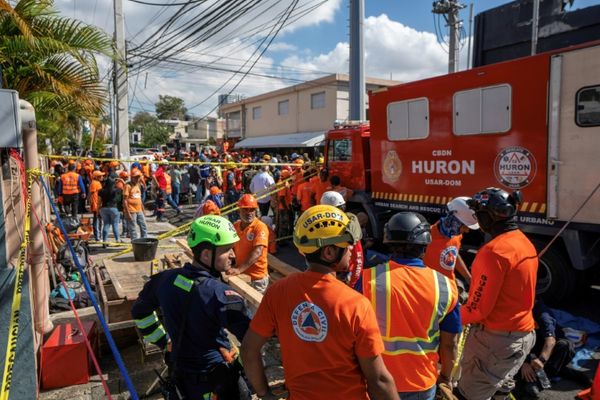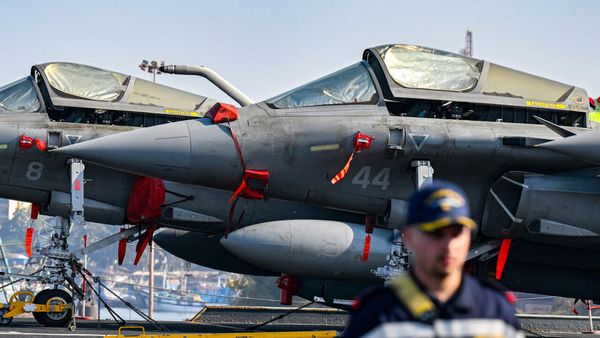The Supreme Court on August 5 highlighted the concern expressed by the academia about the seizure of mobile phones and computers of the academia as "electronic evidence" by investigating agencies during raids, saying they have a right to protect their work and research embedded in these personal digital devices.
"They [academicians] have a right to protect [their work]… today people live on this [personal devices]," a Bench of Justices Sanjay Kishan Kaul and M. M. Sundresh observed orally.
The court said it was not satisfied by the affidavit filed by the Centre, which the latter portrayed as its "raw thinking" on the issue. The Ministry of Home Affairs, in its affidavit said that while laptops, computers and mobiles are commonly used in contemporary society, criminals also "use these devices in the facilitation of their unlawful activities".
"Today, virtually every crime has an electronic component in terms of computers and electronic technology being used to facilitate the crime," the Ministry said. These devices may contain a host of electronic evidence related to the crime under investigation, whether it is a conventional crime or a terrorist act. Technology allows crimes to be committed remotely with near anonymity on targets which are borderless. Devices are seized "simply as material evidence related to an offence".
"No one can be treated above the law. An accused cannot claim the right to privacy when computers, tablets, laptops, mobile phones, etc, especially when it is used for committing crime or has vital information related to a crime under investigation… Digital devices have to be examined thoroughly by forensic experts," the Ministry said.
The law under the Code of Criminal Procedure and Information Technology Act empowers investigating agencies to seize digital and electronic devices.
Professors Ram Ramaswamy, Sujata Patel, M. Madhava Prasad, Mukul Kesavan and Deepak Malghan, who have filed a petition and represented by advocates Nitya Ramakrishnan and S. Prasanna, said academicians lose their life's work when police carry off their computers and drives after a raid. What may be stored in these devices would be their life's work. At the hands of the police, their work run the risk of damage, loss, destruction or even distortion.
The court said the Centre need to study the issue seriously, scan through what is being done in foreign jurisdictions and ensure that a proper stand is taken at the appropriate level.
"They [petitioners] are taking specifically about the academia… Please look into it," Justice Kaul addressed Additional Solicitor General S. V. Raju, for the Centre.
The Bench said the Centre has to file a detailed affidavit this time and accepted the government's request for six weeks' time. The court scheduled the next hearing on September 26. The past years have seen raids on and seizures of electronic evidence from academicians, researchers, lawyers and activists.
The petitioners have asked the court to frame guidelines so that the police treat the academic work and research, usually stored in computers they seize during raids, in a "civilised manner".
"Data that is stored digitally by academics — physical scientists and social scientists may have been collected through extensive field work spanning decades or the results of scientific experiments or calculations similarly representing major effort. If these are tampered with or damaged, the loss to research in the sciences and social sciences is considerable and often irreplaceable. A lifetime’s work is life as much as livelihood. Patentable material may exist or work that runs the risk of being plagiarised. Work may also be stored in ‘clouds’, compelled exposure of which carries all of the aforesaid risks as much as the seizure of physical devices," the petition said.
The "entirely unguided power" of investigative agencies to take control of devices that contain much, if not all, of a citizen’s personal and professional life, requires to be treated in a civilised way by means of directives from the Supreme Court, it said.
"Academic freedom is part of the right to freedom of speech under Article 19(1)(a) and also of the right to practise a profession or occupation under Article 19(1)(g). The work of an author or an academic may be a work in progress to be protected from premature exposure, it may contain sensitive data concerning others, and may store years of research," the petition said.
The Constitution and international treaties such as the International Covenant on Economic, Social and Cultural Rights and the International Covenant on Civil and Political Rights imply the need to protect academic work.
"Recent reports of the UN Special Rapporteur have expressed dismay at the growing intolerance of independent thought on the part of regimes across the world, leading to criminal prosecutions, including in India," the petition said.
It said some "recent news reports" suggested remote tampering with electronic and digital devices. "Whatever be the veracity of the same, it is a matter of concern," the petition has said.







